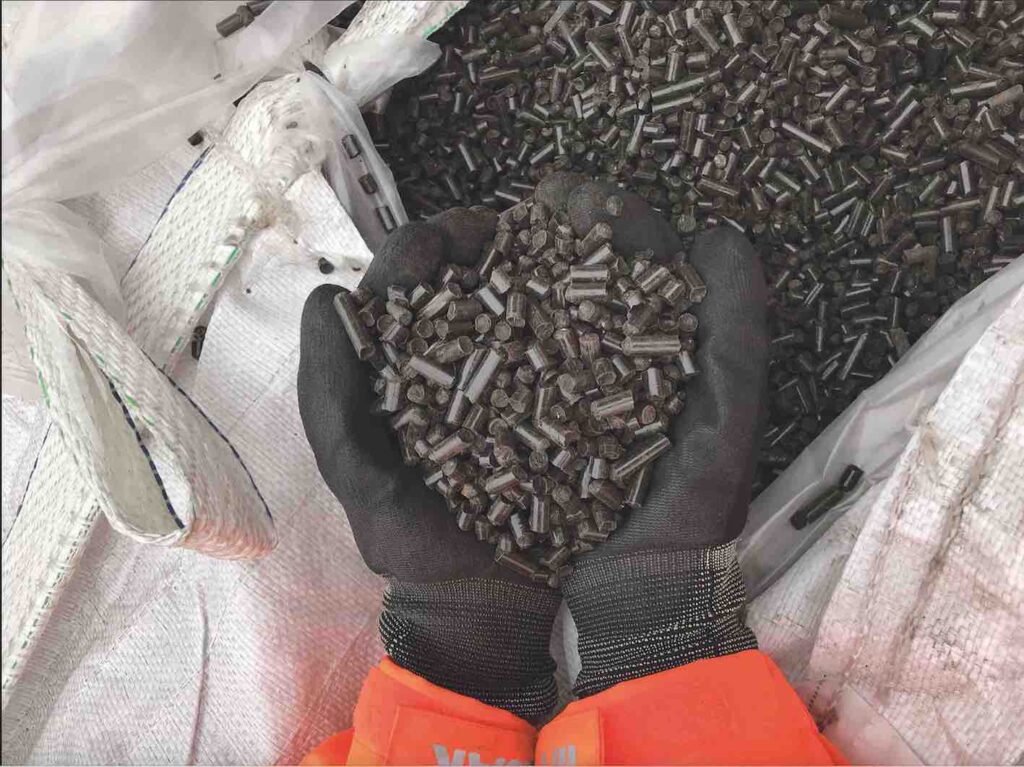High fertiliser costs adding £78m to farmers’ monthly bills

New analysis from the Energy and Climate Intelligence Unit (ECIU) has found that the cost of fertiliser, pushed up during the gas crisis, has been adding around £78million a month to farmers’ bills.
The high cost of fertiliser is linked to the high gas price as many fertilisers are made using gas as an ingredient or in the manufacturing process. Some farmers have reportedly decided not to plant crops in part because of the high costs of fertiliser that would be required to grow them.
Even though gas prices have fallen in the last few weeks they are still three times higher than before the crisis. Many analysts expect wholesale gas costs to remain higher than pre-crisis levels for several years, with potential for further volatility.
While fertiliser prices are also beginning to fall, they still remain at historically high levels: UK-produced ammonium nitrate was £234 per tonne in January 2020, reached a high of £841 per tonne in July 2022, and was still at £700 per tonne in January 2023.
Last year, academics conducted analysis for ECIU which found that 88% of food price inflation in 2022 was down to high oil and gas prices and the impacts of climate change, equivalent to adding £407 to the average household’s food bill.
Recent reports suggest there is now a shortage of leaks due to the impacts of last year’s extreme weather [3]. The heatwave in the UK saw temperatures rise to a record 40.3C and was followed by a widespread drought which still continues in parts of the South West and East Anglia, according to the Environment Agency. British potato crops were also hit by the drought. [4]
Matt Williams, land use analyst for the Energy and Climate Intelligence Unit, said: “Farmers are getting hit from all sides, but underlying many of their troubles are oil and gas. A high gas price made heating greenhouses unaffordable, it’s made fertiliser expensive and burning these fossil fuels has driven up extreme weather like the droughts that are still ongoing in parts of the country.
“Investing in electric heat pumps for greenhouses, solar and wind on farms and British-made low-carbon fertilisers are, in hindsight, steps that might have helped us through the current storm. These measures plus building farms’ resilience through planting trees to shade livestock and trap moisture in soils would help boost the UK’s long-term food security.”
Tesco has recently launched a programme to support farmers to trial alternatives to gas-based fertilisers.
Pawel Kisielewski, CEO of CCm Technologies, a Swindon-based company developing low-carbon fertiliser, said “The UK has entered into a food and energy crisis, damaging both consumers and farmers. We don’t need to be in this situation, as the UK looks to meet net zero targets it must prioritise the acceleration of UK based fertiliser products that are de-linked from international gas prices and reduce 30% of global greenhouse gas emissions associated with traditional fossil fuel-based fertiliser.”
The Swindon-based business has developed and patented a process which turns by-products from industrial and waste processing tacilities into fertiliser.
Cm's technology uses captured carbon dioxide from industrial power generation to stabilise materials such as ammonia and phosphates from agricultural and industrial waste to create new fertiliser products with significantly lower carbon and resource footprints.
The analysis looked at three commonly used fertilisers (Ammonium Nitrate, Urea, and Liquid Urea Ammonium Nitrate). In 2023 British farmers could spend as much as £938million extra due to the increased cost of these fertilisers, equivalent to £78million a month.
Robert Shaw, UK Director at N2 Applied, a company developing plasma-based emissions-free fertiliser technology, said: “Farmers across the UK have been having to bear the brunt of soaring chemical fertiliser prices over the past year or more, and are under constant pressure to have to pass at least some of that cost further up the supply chain to retailers, and ultimately to consumers. The increases are so substantial that a direct impact on the cost of many food products has been inevitable. The UK needs to accelerate the adoption of more sustainable fertilisers that don’t rely on chemical inputs to increase the country’s food security and counter price rises where that’s possible.”
Wyn Morgan, Honourary Professor at the University of Sheffield (and one of the authors of the food inflation analysis mentioned above), commenting on the food prices increases said: “A key driver is the underlying costs of production of raw agricultural products, those that then go through processing to reach consumers. Within this the influence of energy is critical. Rising energy costs not only affect farmers directly - through diesel use for machinery or heating greenhouses - but also indirectly through fertiliser use. Energy is a major component of fertliser production and as energy costs rise, particularly gas, then the costs of fertilisers rise too putting pressure on farm costs. When supply chain costs increase arising from higher energy costs (processing and transport uses a lot of energy) then there is bound to be upward pressure on the prices consumers pay.”














